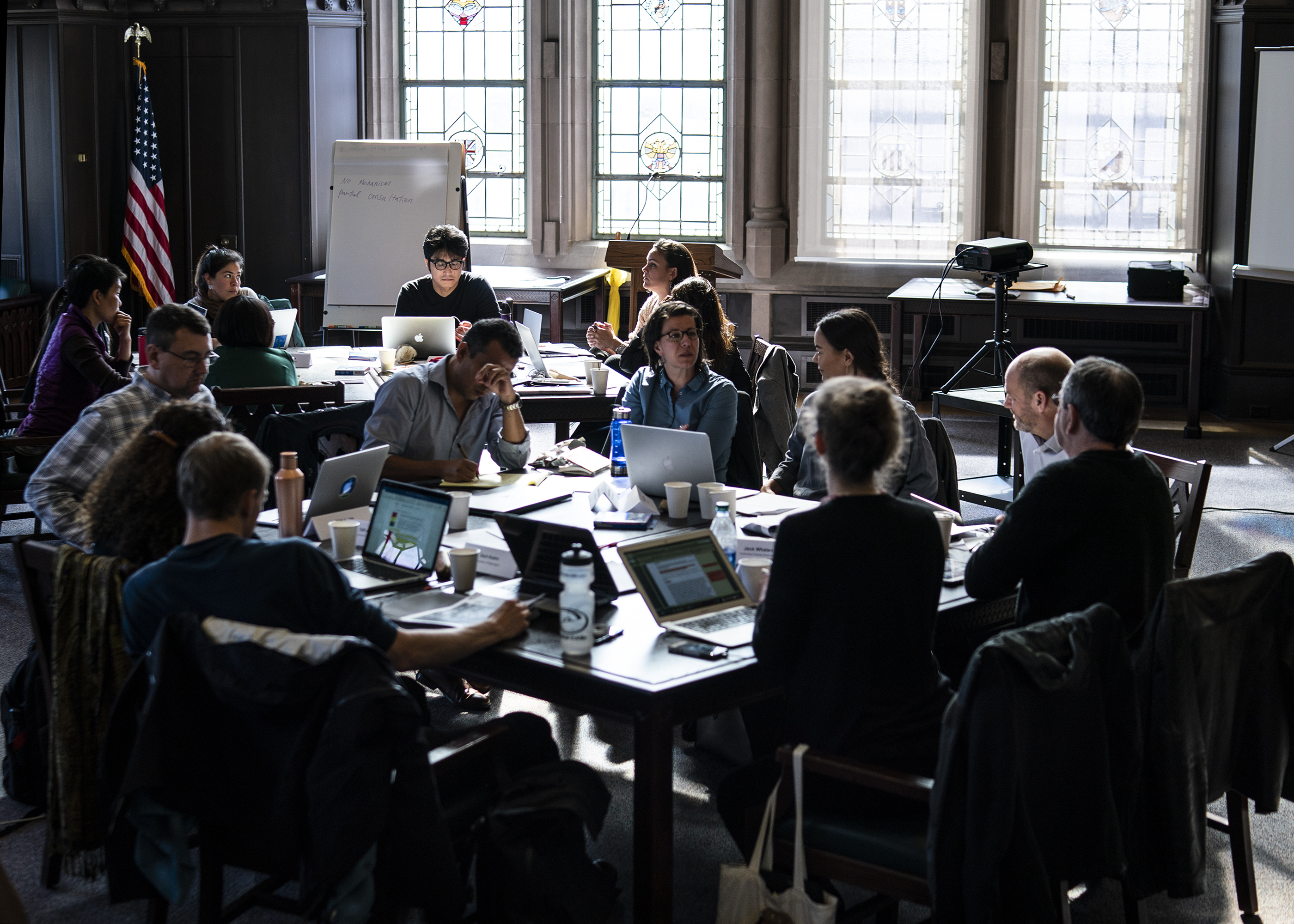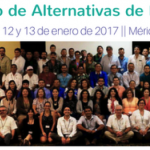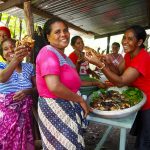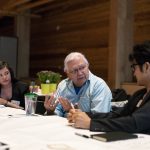Behind the scenes with a determined group of human rights and fisheries experts working to bring social responsibility to the forefront of sustainable fishing.
By Victoria Pinheiro, Nereus Program Strategic Communications Lead

Academics and NGOs gathered to address social responsibility in seafood. Photo credit: Colby K. Neal.
“The gravity and consequences at stake here are intense,” said Jack Kittinger, senior director at Conservation International. Kittinger was addressing a room of academics and NGO representatives gathered at the University of Washington earlier this month for a workshop on social responsibility in seafood production. Until recently, most conversations about seafood have focused on environmental sustainability; issues like depleted stocks, declining biodiversity, and habitat destruction all come to mind. But when the news broke in 2015 revealing brutal work conditions, labor abuses and human slavery feeding the seafood industry, it became clear that social responsibility must be brought to the forefront. The determined, cross-sectoral group of human rights and fisheries experts that gathered at the workshop is working to make that happen.
The scale and complexity of what the group is trying to achieve is daunting, but it’s been done before. Different industries have undertaken similar social responsibility initiatives (think fair trade coffee and bananas), but with varying degrees of success. To ensure a wide swath of perspectives, organizers curated the workshop participant list to include people with backgrounds in a variety of fields; from fisheries to fair trade fashion. One told a story of a retail customer who found a note that said, “please help me” sewn into the pocket of a purse. Kittinger urged the participants to draw heavily on their different experiences while they were together. “We will sometimes need to be difficult with each other, to have difficult conversations,” he said. “There is a real necessity for the diverse perspectives in this room to get this done.”
The goal of the workshop was to design a protocol for assessing and improving social responsibility in fisheries; basically, to clearly define indicators of practices along a spectrum from unacceptable (such as human trafficking and child labor) to best practices (such as the empowerment of women to become leaders in their fisheries). This will be used to create a system to identify fisheries as having high, medium, or low risk for social irresponsible practices, and to highlight specific areas for improvement. The tool covers crucial issues like human and labor rights, access to resources, equality, equity, and livelihood and food security. It was developed by a coalition of academic institutions, industry leaders and nonprofit organizations, and has garnered over two dozen voluntary commitments from seafood businesses. By cooperatively defining social responsibility in seafood, they are working towards aligning efforts to achieve it. “This isn’t about branding, or guilt-free consumption,” said Yoshitaka Ota, director of the Nereus Program, “it’s about raising the standard for how we think about sustainable fisheries to include the rights and wellbeing of the people working in them.”
The group hopes to integrate this protocol into Fishery Improvement Projects that are already underway around the world. Fishery Improvement Projects, or FIPs, currently bring together fishers, managers, researchers and NGOs to improve a fishery’s practices in ways that work towards environmental sustainability. Those gathered at the workshop aimed to add social responsibility to that goal, which is easier said than done. “The FIP model is really promising,” said Andy Shen of the International Labor Rights Forum. “There’s a great opportunity here to preserve human rights and the environment at the same time, but in order to be effective, these initiatives should be worker centered and worker driven. Workers need to be involved in the process…and private sector actors need to be held accountable to the workforce,” Shen said.
Participants dove into the details of the draft protocol during the workshop, meticulously critiquing each section down to the bullet point; tweaking, improving, scribbling things out and adding new passages where they were needed.
“What about forced drug use? That’s common in Thai fisheries. I don’t see that in here,” said one participant.
“Wow. Really?” someone asked.
“What drugs?” Kittinger chimed in, brows furrowed.
“Methamphetamines. To keep them working.” Everyone was quiet for a second. Someone scribbled a note to add a forced drug use section. Kittinger sighed.
“Ok. Where are we at?”
“Child labor is next,” said Ashley Apel, of Fair Trade USA, her face grim. “The things we have to talk about.”
The group didn’t stop at labor violations. While shocking topics like slavery grab the media’s attention, there are quieter, more widespread systemic injustices that tend to be overlooked. “Food security, livelihood security, gender equity…these things are pervasive, but they’re hidden, they aren’t talked about,” said Elena Finkbeiner, of Conservation International. She then explained how these issues lead to the kind of desperation that often drives unsustainable fishing practices in the first place. “Knowing that, how can we talk about environmental sustainability before people are getting the food and income they need to survive and support their families? How can we expect them to think about it? These things have been completely overlooked, and sometimes even undermined by fisheries management.”
The discussions and protocol editing went on for two days. By the end of the workshop, copies of the draft protocol for social responsibility were covered in red marks and notebooks were filled with notes—significant progress had been made. Since that time, Finkbeiner has been working diligently to integrate the edits and suggestions. She plans on having two more rounds of revisions and comments before rolling out Version 1.0 this September; next steps will also include incorporating critical guidance from fishing industry representatives. “We’ve been talking about this for a long time,” Finkbeiner said. “It’s been stuck up at high level principles. The work we did this week will help turn these high-level principles into tangible practice – into something that people will hopefully use to drive improvement on the water. Soon.”
Send questions to [email protected]








